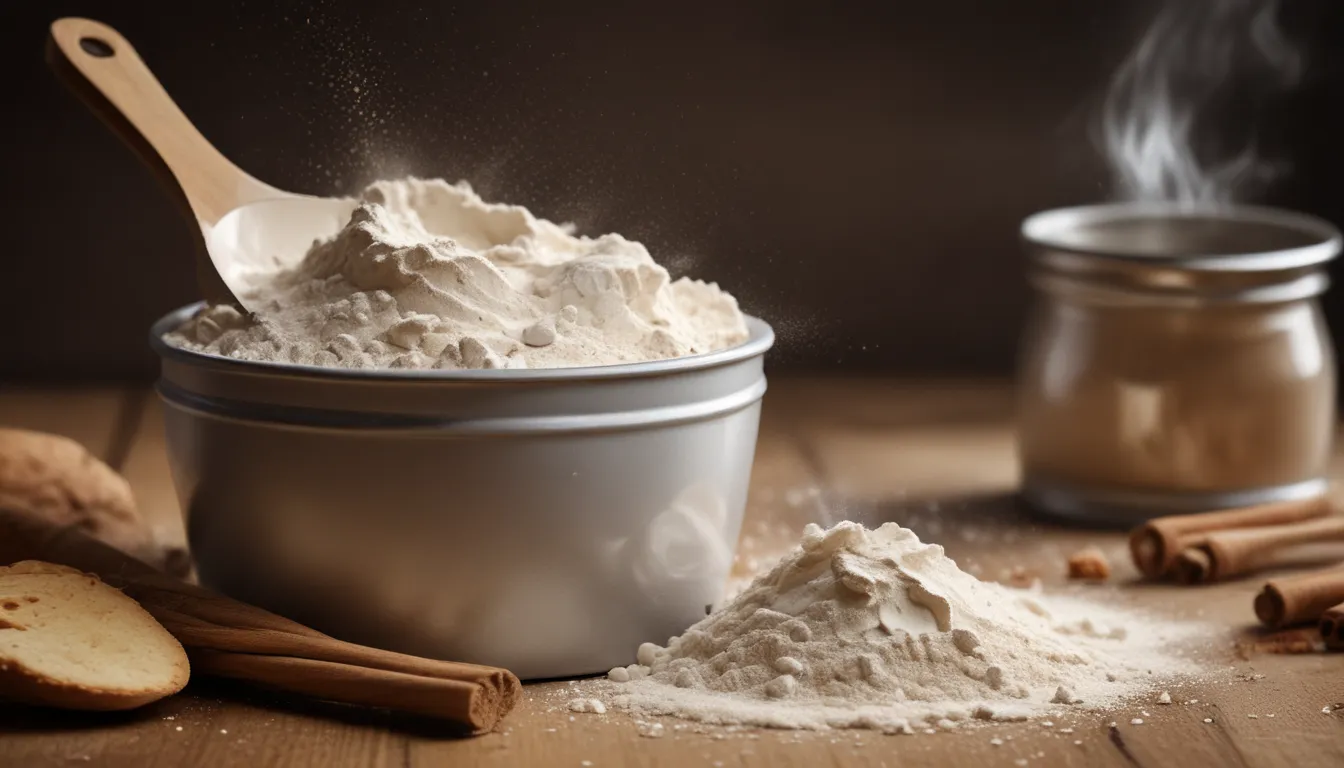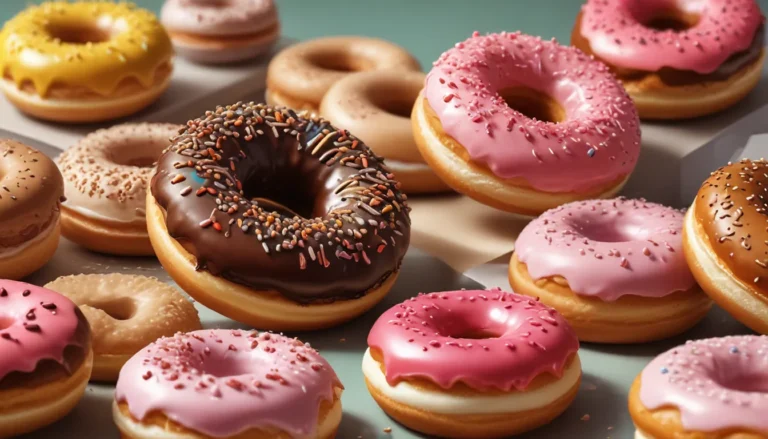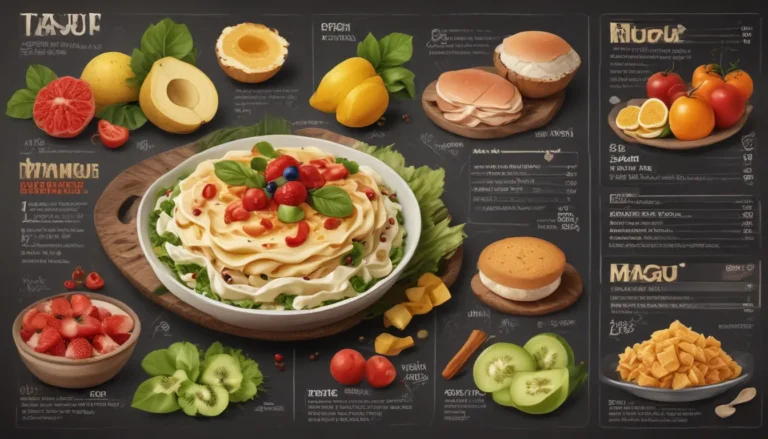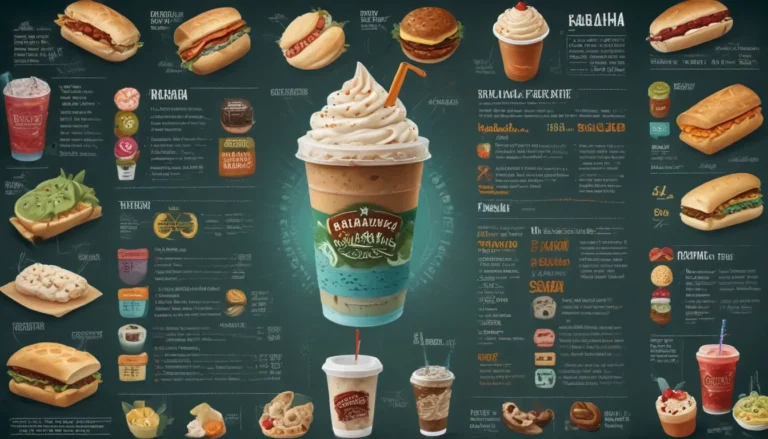The pictures in our articles might not always show exactly what the text is talking about. We use these images to make the article more interesting and eye-catching. They are there to add to the text, but not to replace it or show every detail.
Are you ready to uncover the secrets behind one of the most essential ingredients in your kitchen? Baking powder is more than just a leavening agent; it's a magical component that can transform your baked goods into light, fluffy masterpieces. Whether you're a seasoned baker or a novice in the kitchen, understanding the ins and outs of baking powder is the key to achieving perfect results every time. Let's embark on a journey to explore 12 captivating facts about baking powder that will elevate your baking game and leave you in awe of this versatile ingredient.
Key Takeaways:
- Baking powder is a magical ingredient that makes your baked goods light and fluffy by creating bubbles of carbon dioxide. It's like a secret weapon for delicious treats!
- Remember to check the expiration date of your baking powder and store it properly to keep your baked goods tasting amazing. Plus, you can even make your own in a pinch!
Unveiling the Wonders of Baking Powder
Baking Powder: The Leavening Agent
Baking powder plays a crucial role in many baked goods as a leavening agent. When combined with moisture and heat, it produces bubbles of carbon dioxide, resulting in light and airy textures that are characteristic of perfectly baked treats.
The Unique Composition of Baking Powder
Made up of baking soda, an acid like cream of tartar, and a moisture-absorbing agent such as cornstarch, baking powder boasts a unique combination that enables controlled release of carbon dioxide during baking. This precise formulation is essential for achieving optimal results in your baked creations.
The Importance of Checking Expiration Dates
Just like any pantry staple, baking powder has a limited shelf life. It's essential to monitor its expiration date to ensure that it retains its leavening properties and delivers the desired outcome in your baking endeavors. Keeping your baking powder fresh is key to achieving culinary success.
The Versatility of Baking Powder
From cakes and cookies to muffins and pancakes, baking powder finds its way into a wide array of recipes, thanks to its leavening properties. Its ability to create a light and airy texture makes it an indispensable ingredient for achieving perfection in your baked goods.
The Distinction Between Baking Powder and Baking Soda
While both baking powder and baking soda serve as leavening agents, they operate differently. Baking powder contains the necessary acid component, whereas baking soda requires an additional acid ingredient to activate the leavening process. Understanding this distinction is essential for selecting the right leavening agent for your recipes.
The Phenomenon of Double-Acting Baking Powder
Double-acting baking powder undergoes two chemical reactions: one when mixed with liquid and another during baking. This dual-action process ensures a prolonged leavening effect, resulting in a better rise and texture in your baked treats. Double-acting baking powder is a game-changer for achieving superior results in your baking endeavors.
The Art of Homemade Baking Powder
In times of baking emergencies, fear not! You can easily create your own baking powder by combining baking soda, cream of tartar, and cornstarch. This DIY alternative provides a convenient solution when you run out of store-bought baking powder, allowing you to continue your baking adventures without missing a beat.
The Impact of Baking Powder on Flavor
The type and ratio of ingredients in baking powder can influence the taste of your baked goods. Some baking powders contain aluminum, which may impart a metallic flavor. Opting for aluminum-free alternatives ensures a neutral taste in your culinary creations, catering to a variety of preferences.
Beyond Baking: Cleaning with Baking Powder
Beyond its culinary uses, baking powder doubles as a versatile cleaning agent. Its mild abrasive properties make it effective for removing stains, deodorizing surfaces, and even unclogging drains. Embracing the multifaceted nature of baking powder allows you to harness its cleaning prowess in addition to its culinary benefits.
Baking Powder in the Food Industry
Widely utilized in mass-produced baked goods, baking powder plays a critical role in ensuring consistency and quality across large batches of products. Its reliable leavening properties contribute to the uniformity of texture and rise in an array of baked items, making it a staple ingredient in the food industry.
Proper Storage for Optimal Results
To prolong the shelf life of your baking powder and maintain its effectiveness, it should be stored in a cool, dry, and airtight container. Proper storage conditions safeguard the leavening properties of baking powder, allowing you to achieve exceptional results in your baking projects.
Elevating Your Baking Expertise with Baking Powder
In conclusion, baking powder is not just a pantry essential—it's a versatile ally that can enhance your baking endeavors and elevate the quality of your creations. By understanding the nuances of baking powder, from its composition to its impact on flavor and texture, you can embark on a culinary journey filled with delightful surprises and successful outcomes. Let these 12 fascinating facts about baking powder be your guide as you delve into the art of baking and unleash your creative potential in the kitchen.
Frequently Asked Questions (FAQs)
Q: What is baking powder made of?
A: Baking powder typically comprises baking soda, an acid ingredient like cream of tartar, and a starch such as cornstarch.
Q: Can I substitute baking soda for baking powder?
A: While both are leavening agents, baking powder contains acid for a complete reaction, unlike baking soda that requires an additional acidic component.
Q: How long does baking powder last?
A: Generally, baking powder has a shelf life of 6 to 12 months. It's advisable to check the expiration date for optimal results.
Q: What happens if I use too much baking powder?
A: Excess baking powder can result in bitterness, an off-putting metallic taste, and irregular rising in your baked goods.
Q: Can I use baking powder in non-rising recipes?
A: Yes, baking powder can enhance the texture and tenderness in recipes that don't require significant rising, such as cookies and pancakes.
Q: Can I use expired baking powder?
A: It's recommended to replace expired baking powder to ensure the quality and rise of your baked goods.
Q: Can baking powder go bad?
A: Over time, baking powder may lose its effectiveness. Proper storage and monitoring the expiration date are essential for maintaining its freshness.
Q: Does baking powder need refrigeration?
A: Baking powder does not require refrigeration but should be stored in a cool, dry place away from heat and moisture.
Embrace the transformative power of baking powder as you embark on a culinary adventure filled with light, fluffy creations and delectable delights. With these insightful facts at your side, you're equipped to conquer the world of baking with confidence and creativity. Let your passion for baking soar and your culinary skills flourish as you unlock the magic of baking powder in every recipe you create. Happy baking!






